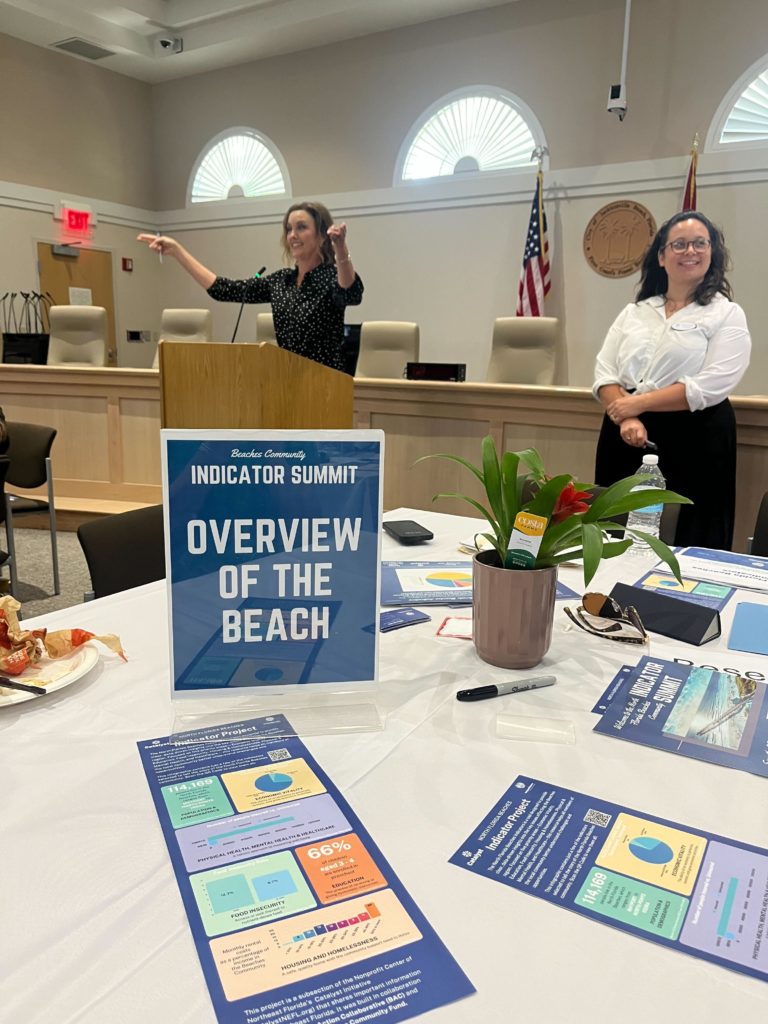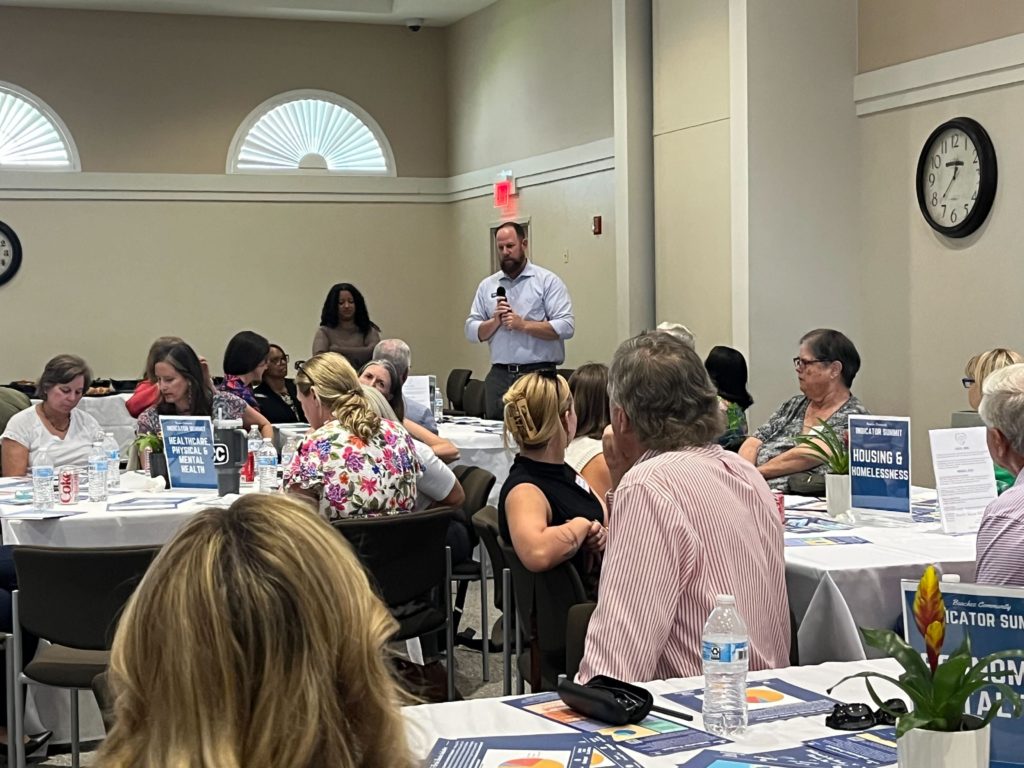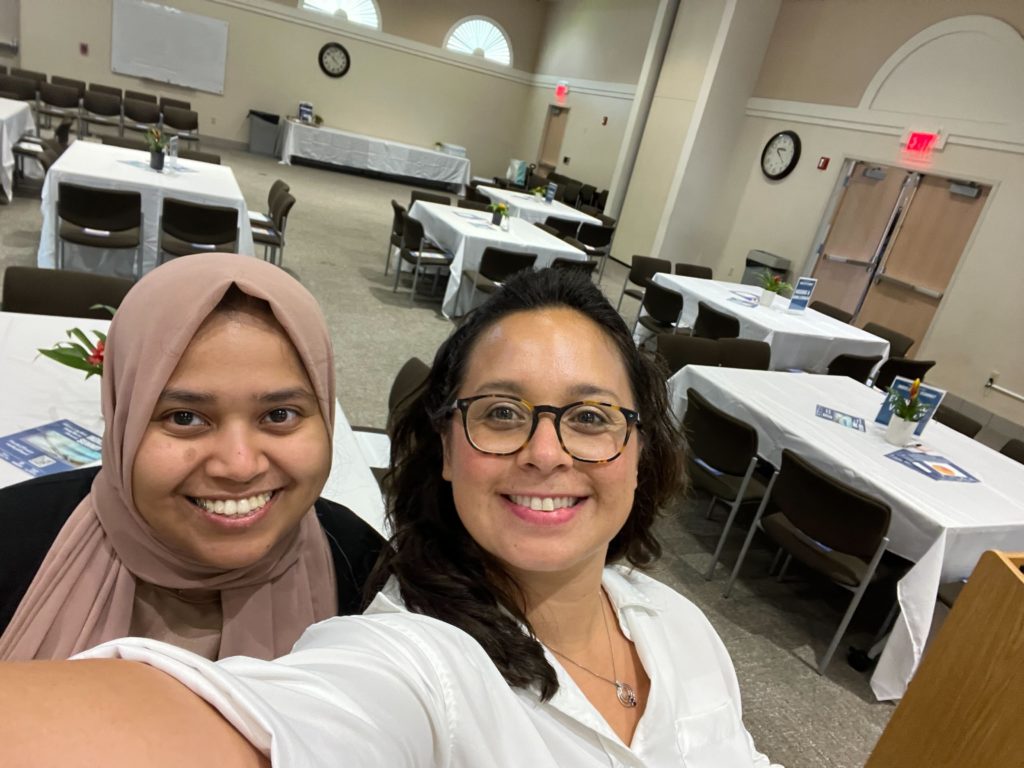Sharing Outcomes from the Beaches Community Indicator Summit



On May 20, 2025, more than 70 community leaders, nonprofit professionals, faith partners, and civic leaders gathered for the Beaches Community Indicator Summit, marking the official launch of the North Florida Beaches Community Indicators Dashboard.
Co-hosted by the Nonprofit Center of Northeast Florida and the Beaches Action Collaborative (BAC), the summit brought together voices from across the Beaches region, stretching from Mayport to Ponte Vedra Beach, to explore what data tells us about the Beaches community.
This new dashboard is part of the Nonprofit Center’s broader Catalyst initiative. Focused on six key areas — Economic Vitality, Education, Food Insecurity, Housing & Homelessness, Physical & Mental Health, and Healthcare — the dashboard is a living tool designed to support our shared mission of building an even better Beaches community.
Explore the Dashboard: https://dashboards.mysidewalk.com/beaches-indicators-report-4947f3aaf4ed
Insights From the Summit: What the Data is Telling Us
Participants dove into the dashboard and brought it to life with thoughtful, place-based observations. Some of the most valuable insights included:
- Economic Vitality: Local data highlighted surprising vehicle access trends — including 1,600 households with no cars — as well as concerns about the transportation needs of older adults no longer driving. Participants also noted a need to better reflect local mobility patterns, like the use of golf carts and bikes, in future data refinements.
- Housing & Homelessness: Faith-based partners discussed their crucial (and often untracked) contributions to community support. Several participants highlighted the presence of heirs’ property in Neptune Beach and startling rent-to-income ratios, with some households spending over 50% of their income on rent. The group also emphasized the flaws with the homeless point-in-time count, and how other, private data sources from HUD could more accurately tell the story of homelessness at the Beach.
- Education: Local leaders reflected on the declining number of children at the beach. They also discussed the impact of Florida’s school choice system and the declining enrollment in public schools along the Beaches. As private education is also contracting, participants emphasized the need for data that tells the full story of educational access at the Beach and across Jacksonville.
- Food Insecurity: Mayport was identified as a food desert, with limited grocery options beyond the commissary. Barriers for transportation, particularly affecting seniors, severely limit their health food options, and concerns were raised about older adult populations not accessing benefits like SNAP due to digital barriers. The group would like to focus future data opportunities around finding data for food insecurity at a zip code level, vs what exists now, at a county level.
- Physical & Mental Health: Community members asked important questions about the definition of poor mental health and access to mental health care, especially for teens and marginalized populations.
We are thankful to the Beaches Action Collaborative for their leadership, partnership, and commitment to collaboration. And to the Beaches Community Fund and the Community Foundation for Northeast Florida, whose generous support made this work possible.
Want to get more involved in the Beaches Community or join the Beaches Action Collaborative? Please reach out to Carol Barbour at jcbarbour161@icloud.com to learn more.
Have questions about the project or want to learn more? Reach out to Allison Ownby, Director of Research & Evaluation at the Nonprofit Center of Northeast Florida at aownby@nonprofitctr.org or 904-425-8758.
